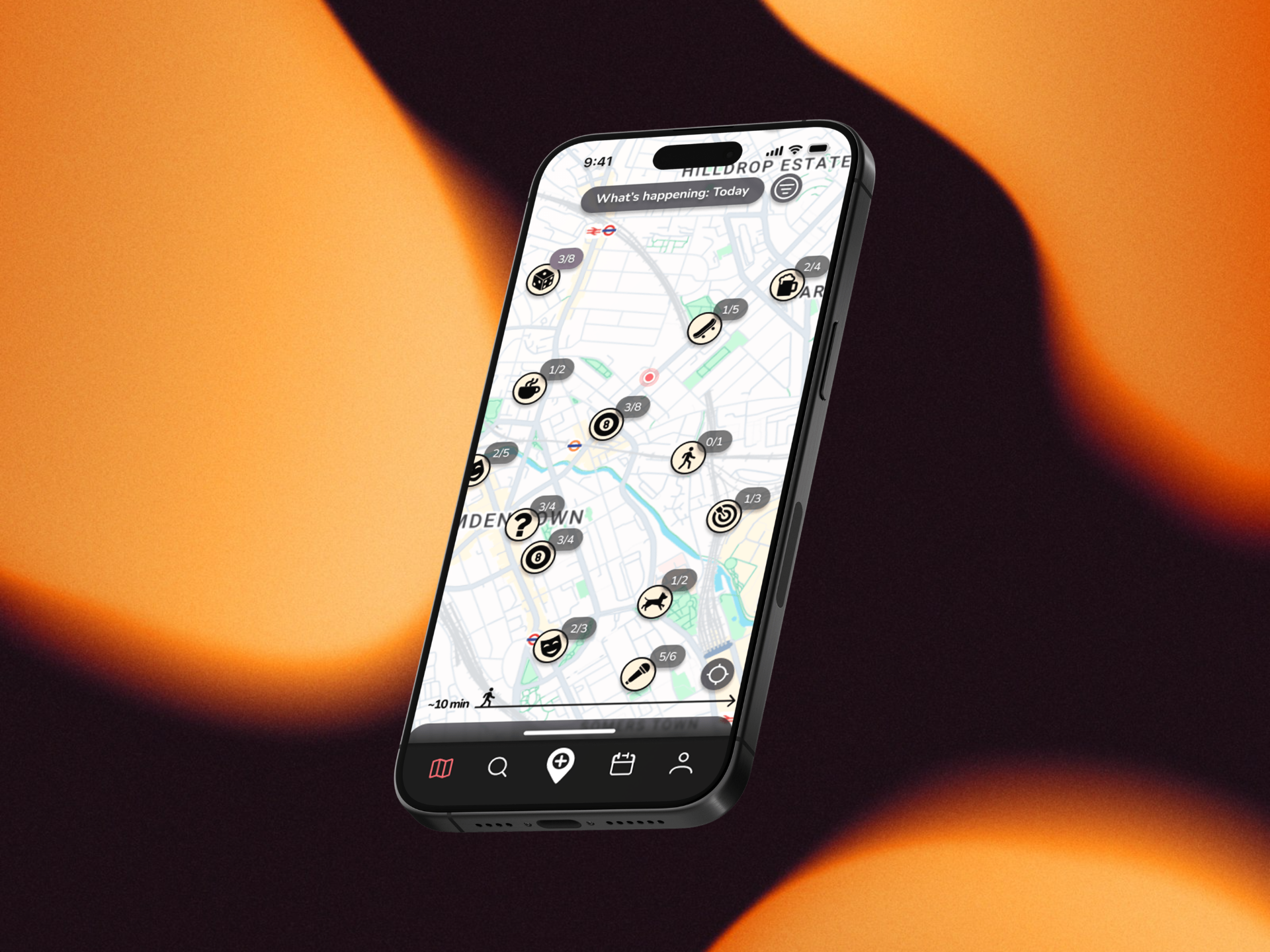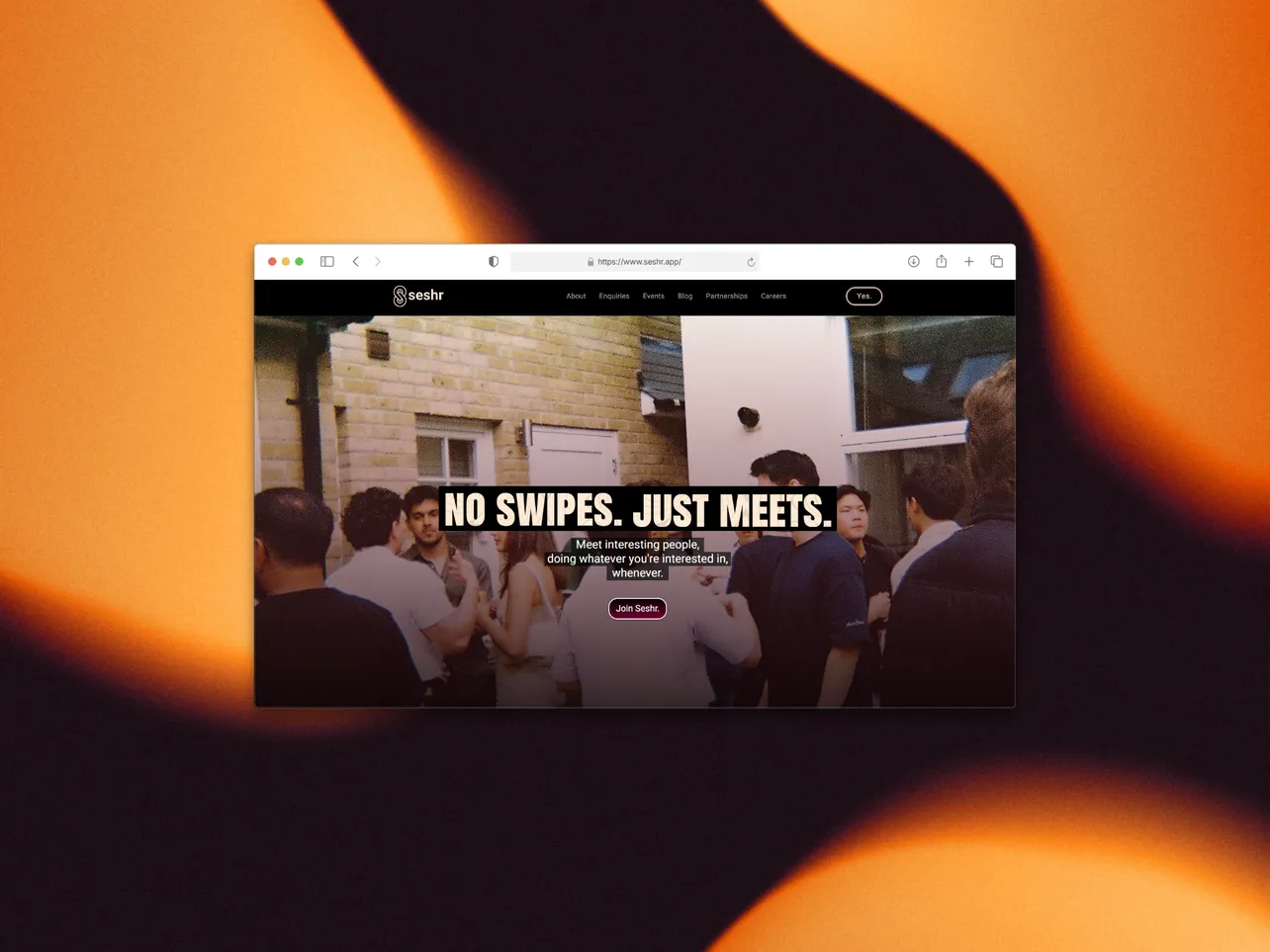London's loneliness crisis is real and getting worse. 7% of people in England (approximately 3.1 million people) now report feeling lonely often or always, with young adults aged 16-24 being the most affected at 10%.
But for John, this wasn't just a statistic. It was his reality.
After training in law and moving into finance, John found himself caught in London's relentless corporate grind. Long hours, fleeting social interactions, and an overwhelming sense of isolation despite being surrounded by millions of people.
When life drew him away from close friends like Stephen, gaps in social plans left him with quiet evenings and missed opportunities for connection.
Instead of waiting at home, John began heading out solo. He tried pool halls, board-game cafés, discovered new places around London. Something unexpected happened: he started forging genuine friendships through spontaneous interactions.
That's when the lightbulb went off.
Meet Angelina: Turning Personal Pain into Purpose
Q: What problem does your product solve?
Angelina: "John founded Seshr out of a personal drive to turn loneliness into connection. When life drew him away from close friends like Stephen, gaps in social plans left him with quiet evenings and missed opportunities. Instead of waiting at home, John began heading out solo—trying pool, board-game cafés, discovering places—and in doing so, he unexpectedly forged new friendships through spontaneous interactions. Realising how rewarding it was to connect that way, he imagined a tool that could make it accessible to anyone, anywhere. That's how Seshr was born, reuniting him with Stephen and aiming to help others find their people too."
Q: What inspired you to start this?
Angelina: "John's journey to founding Seshr began far from the startup world. He first trained in law, then moved into finance, where he quickly found himself caught up in the relentless corporate grind. On the surface, things looked successful — but underneath, the reality of living in London hit hard: long hours, fleeting social interactions, and an overwhelming sense of loneliness. That contrast lit a fire in him. He realised he didn't just want to build a career; he wanted to build something that made a tangible difference. Out of that came Seshr — a way to tackle the loneliness epidemic head-on, by creating a platform that helps people connect in real life, instantly and meaningfully."
Q: What changed everything for your startup?
Angelina: "Career Pivot, and seeing what a difference it was already making and having mental health charities wanting to work with us."
The Loneliness Epidemic: A Crisis Hiding in Plain Sight
The numbers behind Seshr's mission are staggering and getting worse:
- UK-Wide Crisis: One in four adults (25%) now report feeling lonely "often or always" or "some of the time", with over 9 million adults in the UK reporting chronic loneliness, a figure that has increased by over 25% in just five years.
- Young Adult Impact: Contrary to popular belief about elderly loneliness, adults aged 16-24 (10%) and 25-34 (9%) are more likely to report feeling lonely often or always than older age groups. The digital generation that should be the most connected is actually the most isolated.
- The London Factor: The "Sandwich Generation" (40-59) faces a new wave of loneliness, squeezed between caring for children and elderly parents, often with high-pressure careers and little time for social connection. This perfectly describes John's original situation in London's finance sector.
- Health Impact: The impact of loneliness on mortality is similar to smoking 15 cigarettes per day, and for an individual, the combined impact of loneliness-induced illness, cognitive decline, and lost earnings can exceed £5 million over a lifetime.

How Seshr Works: Real-Time Connection for Real People
Seshr isn't another dating app or endless-scrolling social platform. It's designed for spontaneous, real-world connections through a real-time social app that helps people connect through spontaneous meetups and shared interests.
The platform addresses several key problems in existing social solutions:
- The Planning Problem: Traditional social apps require extensive planning and coordination. Seshr focuses on "right now" connections for people who want to do something immediately.
- The Authenticity Gap: Unlike dating apps focused on romantic connections or professional networking, Seshr is purely about friendship and shared activities in the moment.
- The London Challenge: In a city where everyone is busy and plans fall through constantly, Seshr provides a solution for those spontaneous moments when someone wants company for an activity.
Early Impact: Mental Health Charities Take Notice
While Angelina didn't provide specific user numbers, the fact that mental health charities are actively wanting to partner with Seshr speaks volumes about the platform's potential impact.
Partnership with South East London Mind: SEL Mind has partnered with Seshr, launching "Up to Something Good," a series of casual social events designed to get Londoners active, connected, and making a difference.
The initiative combines social connection with social impact, featuring:
- Fun runs and board game nights
- Pub quizzes and gallery visits
- Low-pressure, accessible events that help people feel better physically and mentally
Real-World Results: "We're creating low-pressure, accessible events that help people feel better, physically and mentally," says John Jansen, CEO and co-founder of Seshr. The fact that established mental health organizations are seeking partnerships demonstrates Seshr's credibility in addressing real social connection needs.
The Broader Social Connection Movement
Seshr is part of a growing recognition that digital solutions alone can't solve our connection crisis.
Research shows that individuals who reported higher levels of in-person social interaction experienced significantly greater life satisfaction and emotional well-being than those who primarily communicated online.
The "Third Place" Solution: Sociologist Ray Oldenburg suggests the idea of First, Second and Third places. First places are our homes, second places our workplace, and third places public spaces where people can meet and spend time together. Seshr helps people discover and connect in these crucial third places.
Breaking the Digital Fatigue Cycle: Though we are technically connecting with our friends through social media, this inevitably leads to a sense of fatigue. This connection doesn't involve spending quality time together or face-to-face communication, isolating us further.
Where to Find Seshr
Q: Where can people learn more?
Angelina: You can check out:
- Website: Seshr.app
- Beta App: Available for download on the App Store
The platform is currently in beta, which explains the focus on London and the partnership approach with local organizations like SEL Mind.
John's journey from finance burnout to social connection entrepreneur represents something bigger than a career pivot. It's about recognizing that loneliness isn't just a personal problem but a public health crisis that requires innovative solutions.
Seshr addresses the fundamental challenge of modern urban life: how do you make genuine connections when everyone is busy, plans constantly fall through, and digital communication leaves us feeling more isolated than ever?
The platform's early partnership with mental health charities validates what John discovered through his own experience. Sometimes the solution to loneliness isn't complex therapy or expensive interventions. Sometimes it's as simple as having a tool that helps you find your people when you're ready to connect.
In a city of 9 million people where 7% feel chronically lonely, Seshr offers something radical: the possibility of turning any evening from a lonely one into a connected one, spontaneously and authentically.
As digital fatigue grows and people crave real-world connection, platforms like Seshr represent the future of social technology. Not more screens and endless scrolling, but tools that get us offline and into the same room with people who might become friends.
Ready to turn loneliness into connection? Visit Seshr.app to learn more about spontaneous social connection in London.



